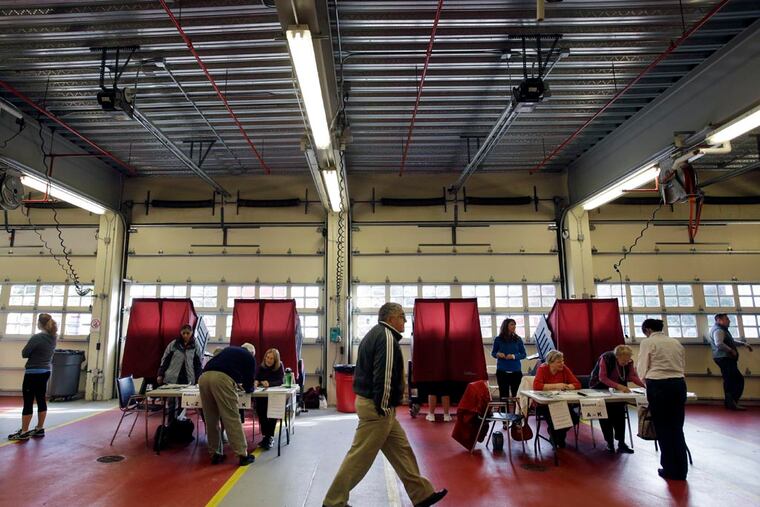N.J. lawmakers left 172,000 voters off a permanent absentee voter list. They’re scrambling to fix it.
Voters in 2016 were grandfathered in when lawmakers created a list of mail-in voters in 2018 — but they left out 2017 and 2018 voters.

New Jersey lawmakers meant to make it easier to vote. They didn’t mean to sow confusion and leave out 172,000 voters when they created a permanent list of absentee voters.
The goal was to allow people to sign up to vote by mail for all elections in perpetuity, giving them more flexibility in casting ballots. No need to keep requesting absentee ballots.
But when the permanent vote-by-mail list was enacted in 2018, the law’s language only appeared to grandfather in voters who received absentee ballots in the 2016 general election. The voters who signed up to vote by mail after the 2016 election and before the law took effect in 2018 shouldn’t be automatically added to the list, according to the Secretary of State.
Oops.
“I think we left the door open for misinterpretation,” said Assemblywoman Patricia Egan Jones (D., Camden), one of the bill’s primary sponsors. Jones said lawmakers’ intent was always to include the 2017 and 2018 absentee voters. If that’s not clear in the law, she said, it needs to be changed.
So lawmakers are rushing to change the law again, patching the 2017-18 hole to include those voters. A bill was quickly drafted and introduced at a quorum call Friday afternoon, legislative aides said; it will be voted on at a special legislative session next week.
“We’re going back to do the due diligence that’s required,” Jones said. “We do not want anybody to have a question about this.”
Legislators need to act quickly — absentee ballots start getting sent out next month, with seats in the state Legislature up for grabs in November. Voters expecting to receive ballots by mail might not realize until too late that they have to request them again; mail-in votes can make up a significant share of ballots cast, especially in low-turnout elections.
What N.J. lawmakers were attempting to do
Unlike its restrictive neighbor to the west, New Jersey law allows all voters to request mail-in ballots. About 9 out of 10 voters still vote in person on Election Day, but early voting and mail-in ballots have become more popular. Voting-reform advocates say expanding vote by mail gives voters more flexibility to cast their ballots.
There used to be three options for voters requesting a mail-in ballot: just one time; for every election in that particular year; or for every general election moving forward.
Under the 2018 law, voters can either request an absentee ballot one time or for every election moving forward until they ask to change their status. They don’t have to keep applying for mail-in ballots, Jones said. “It’s so much easier for folks.… Voting is way too important.”
Murphy signed the bill into law a year ago, setting up the new permanent list. Voters who had requested the perpetual mail-in ballot status were to be automatically added.
The 172,000-voter problem
The law, though, includes the following language:
Even if lawmakers meant to include voters who requested mail-in ballots in 2017 and 2018, the law excludes them. An estimated 172,000 voters requested absentee ballots for all general elections in the future, but made that request after the 2016 general election and before the new law took effect in August 2018.
Counties run elections, but the Department of State provides support. County clerks last year notified affected voters that they wouldn’t be automatically added to the permanent list; as of Friday morning, about 149,000 had responded, said state elections head Robert Giles. Most asked to be put on the list.
Last month, Giles said, he told county clerks in a conference call that the state was updating the status of the 2017 and 2018 voters in the statewide database, marking them as not automatically receiving mail-in ballots .
“It wasn’t a ruling, it wasn’t an opinion, it wasn’t anything along those lines. It was simply, ‘OK, we’re taking an action,’” he said Friday morning. “It was a reminder that … their status as an all-general-election voter would be inactive because it would no longer exist. So we were cleaning up the data.”
As word of the issue spread, Trenton scrambled to respond.
“We are working closely with the Legislature to find a legislative solution,” a spokesperson for the governor said. The bill was introduced Friday afternoon.
How lawmakers are trying to fix it
The bill would simply add 2017 and 2018 to the law, according to a draft shared Thursday afternoon by Rich McGrath, spokesperson for Senate Democrats:
McGrath said the bill will be introduced on second reading, meaning it does not have to travel through any committees and can go straight to the Senate floor.
A special Senate session is planned for Monday; Jones said the Assembly session is scheduled for the day after.